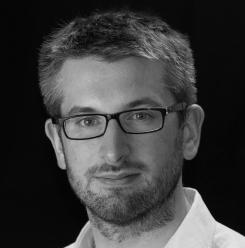
Michael Wickham Moriarty
Director, Deputy Chairperson and Company Secretary
Michael Wickham Moriarty has been a voluntary Director, Deputy Chairperson and Company Secretary with children’s charity EPIC (Empowering People in Care) for the past four years.
He trained as a chartered accountant with PwC, and has worked for the last nine years in the not-for-profit sector. He is currently the Head of Finance of the Central Remedial Clinic (CRC) and has recently joined the Board of Governors of the Rotunda Hospital.
What has been your career highlight to date?
In my first year at the CRC, we recruited new auditors and converted our financial reporting to comply with the Charities SORP FRS 102. We published our 2015 financial statements with a really high level of transparency. It took long hours and weekends of work, but that level of open reporting is essential for charities.
What qualities do you need to succeed in business?
I think ambition, vision and persistence are all needed in order to succeed. A hunger for success must be combined with some level of wild-eyed imagination. But neither of these are sufficient unless they come with a strong work ethic, resilience and a certain level of stubbornness.
Who or what are your main influences?
Chuck Feeney is inspirational. The level of his commercial success is rare, though not unique. However he is a real trailblazer in modern philanthropy. Funding from Atlantic Philanthropies transformed EPIC as well as many other organisations in Ireland. I was also fortunate enough to receive a scholarship funded by Atlantic Philanthropies. I recommend Chuck’s biography, “The Billionaire Who Wasn’t”.
What is the most challenging part of your role?
A small charity like EPIC cannot maintain a large multi-disciplinary management team or afford high levels of professional advice. So, as a voluntary board while we must direct and govern the organisation, it can be very tempting to dip into management tasks. But we must keep to the maxim “noses in but fingers out!”.
What, in your view, is the biggest challenge facing directors in Ireland today?
In my experience in the charity and state sectors, I see an increasing focus on compliance, both regulatory-driven mandatory compliance as well as voluntary codes. Rather than allow this compliance distract from, or become an obstacle to, strategic goals, I think the challenge is to integrate compliance as a step in achieving success.
What, in your opinion, makes a great leader?
A great leader communicates a vision and inspires people to strive towards it. There are many different styles of doing this. Some leaders are charismatic and energetic, some are humble but can be seen living their values. Great leaders I’ve worked with have always had a strong focus on those they serve.
What do you hope to gain from your membership with the IoD?
I want to use the learning and networking opportunities of IoD to ensure that I can be as effective as possible as I step into my new role as a Governor of the Rotunda Hospital. I believe the resources of the IoD can assist me to build on and consolidate my professional and voluntary governance experience.

